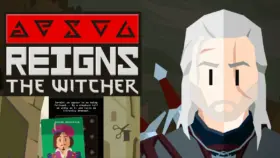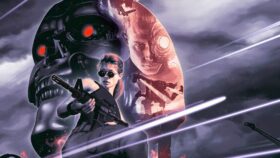Dispatch, the new game from the creative forces behind Telltale’s Walking Dead and The Wolf Among Us, is back in a new outfit – AdHoc Studio – and with a fairly tropey, emotionally charged superhero outing.
The first season of AdHoc’s episodic genre revival has finally finished, after being delivered in two episode chunks, so let’s bring everyone up to speed.
Set in a fictional Los Angeles, where superheroes and villains run wild, Robert Robertson, Mecha Man, has lost it all. His fortune has been spent keeping his father’s legacy of Mecha Man alive. Repairing the giant suit is the main thing. Since his father’s death, Robert has been searching for a villain named Shroud, whose gimmick is predicting the future.
After exploding and being presumed dead, Robert steps away from Mecha Man and finds himself working as a dispatcher at a superhero-for-hire outfit, Superhero Dispatch Network (SDN).
The story centers around Robert adjusting to his new role and those whom he’s been made to manage. That’s the Z-Team, made up of various turncoat villains all being given another shot. It’s these characters that really make Dispatch shine, as Robert himself is a milquetoast, semi-blank slate for you, the player, to influence.
Dispatch Cast
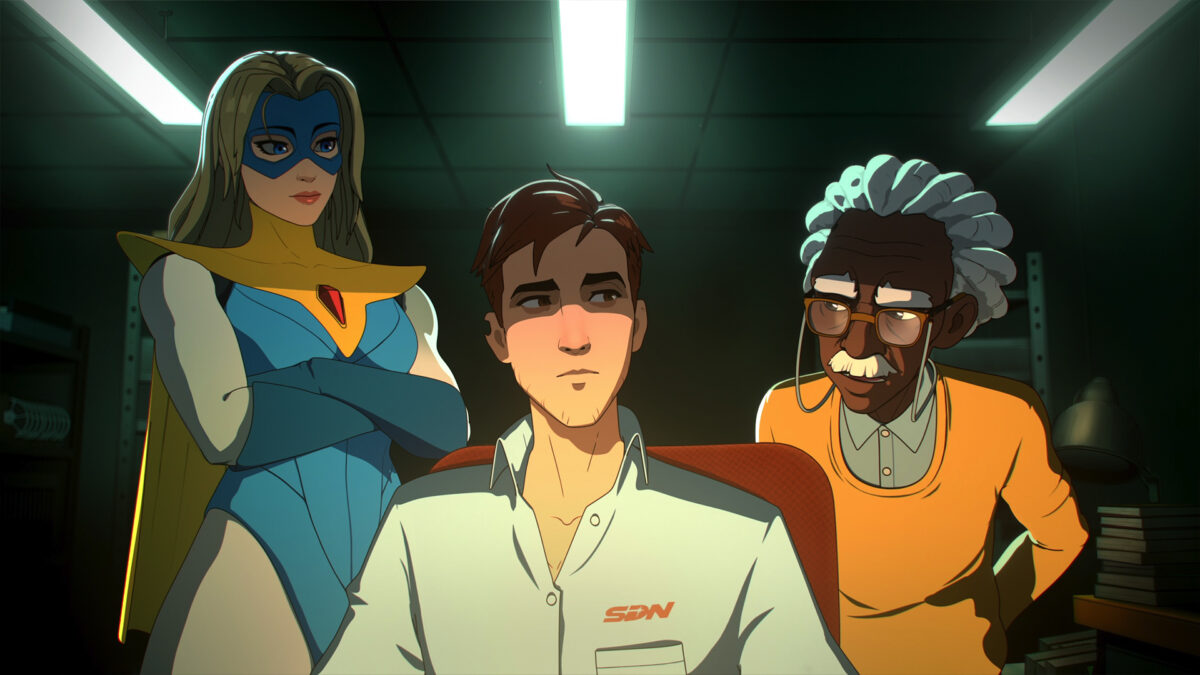
Z-Team consists of a star-studded lineup, too, including Charlie White, or MoistCr1TiKaL on YouTube, Alanah Pearce, and Laura Bailey. Almost every voice actor leans heavily into their assigned tropes. Bailey, who voices possible love interest Invisigal, whips out her best L.A. bad girl voice, while YouTuber jacksepticeye, Seán “Jack” McLoughlin, who plays pint-sized Irish strongman Punch Up, reaches deep to find the most Americanized, understandable version of a thick Irish accent.
Robert, who is voiced by Breaking Bad star Aaron Paul, often feels like he’s trailing behind the rather vibrant and rambunctiousness of seasoned voice actors (and YouTubers). I understand his character is a depressive, but in the first couple of episodes of the game, he sounds lost. As if he’d just seen the script an hour before and was getting his bearings about this fantastical world.
His harsh, almost gravel-like presence from his on-screen outings and his voice acting in Bojack Horseman are definitely felt here. As the game progresses, he elevates what’s a really dry, boilerplate superhero script. Especially once the story starts to find its way to the “weird bunch become weird family” motifs after Episode 3. Paul is forced to give these speeches that are player-influenced, and every single option makes my skin crawl, even as everyone is taking it deadly seriously within the world.
Each superpowered individual that the game presents isn’t anything we haven’t seen before. Pearce, who plays Malevola, feels as if it fell right out of one of creative partner Critical Role’s Dungeons & Dragons videos. A buff demon lady who wields a sword and can use Hell portals. Again, she even sounds and is portrayed exactly like what you think.
White’s Sonar, a bat-human hybrid, is a true leftfield favorite for me, as he feels as though he’s the best written. This is despite that most of his contributions to the game can feel like it’s almost trying too hard to make him overtly likable. During parts of the Dispatch sections, idle chatter dips into him arguing with Robert over a stapler or his various quips as he randomly transforms into a giant monster bat.
These tiny moments are dotted throughout the entire game with each character, and it’s fun to hear them all. It’s funny that the best moments of Dispatch are during the mundane moments, rather than the bursting with energy action sequences or its attempts to tug on heartstrings.
Dispatch is really good at making the world feel real, and its characters all cement this. It’s the overall story and some of the quirks that come with the superhero genre that make it feel just a little hollow for me.
Dispatch Review
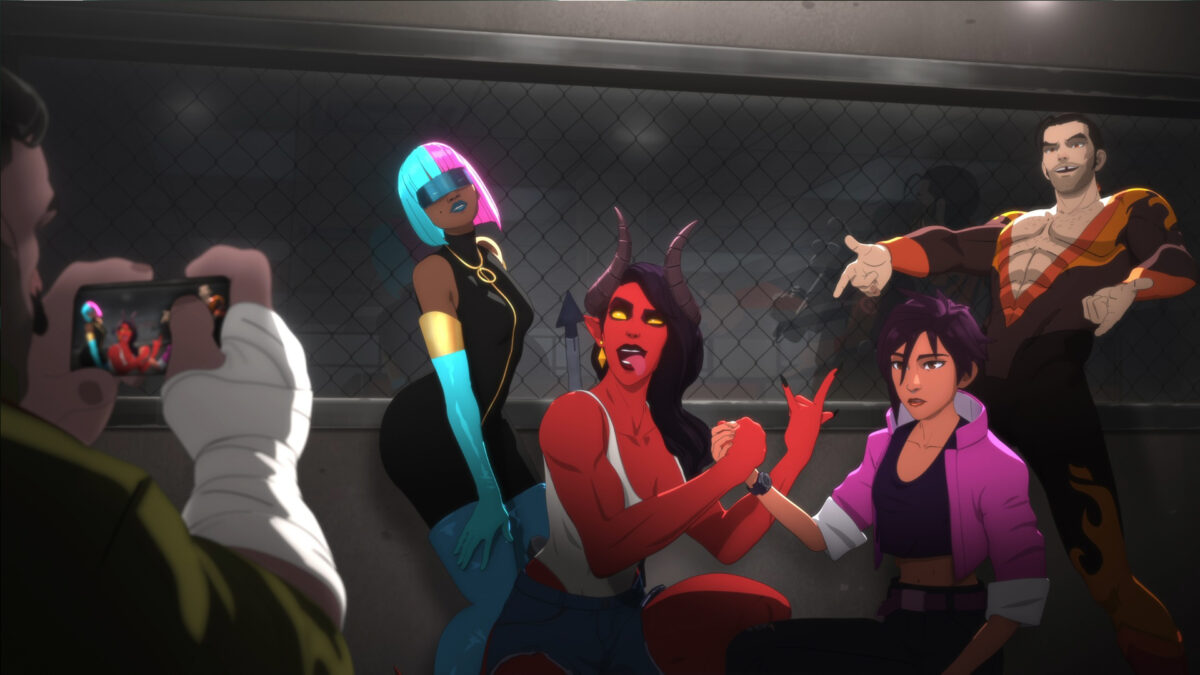
Dispatch is a lot like playing someone’s first time reading Image Comics. Comics like Savage Dragon or Invincible feel like a massive influences, with the fiction’s norm being that there are just superpowered individuals about.
Erik Larsen’s and Robert Kirkman’s smushing of realism with fiction has informed quite a few comics like this, and Dispatch is no different. It works here too, and the moments where it shows off its wider world in the story are a glimpse into something far more interesting than what they want us to focus on.
At other points, it also feels like someone is trying to take a spin on the Iron Man concept, but using an everyman instead of super-genius Tony Stark. Some of its more crass moments, like Toxic, who has acid skin and thus, his dong is always out, feel straight out of a Garth Ennis issue of The Boys. Dispatch just never has the guts to sully the superhero genre like Ennis, though, making its low-brow humor a glaring spot with very minor payoff.
It also leans massively on the old Alan Moore advice for superheroes. If they’ve been bestowed these incredible powers, they need a flaw. Invisigal has asthma. Sonar can’t control his transformations. Punch Up is practically invincible, but was shrunk to three feet tall and made dumb as rocks. Once you see it, it’s completely and utterly noticeable in almost every aspect of the story.
However, it’s not bad advice to follow, as much as I spent a few hours with these characters, I know them fairly intimately. By the time the final credits roll, it’s a tad bittersweet to see them go for now.
Mecha Man’s Odyssey
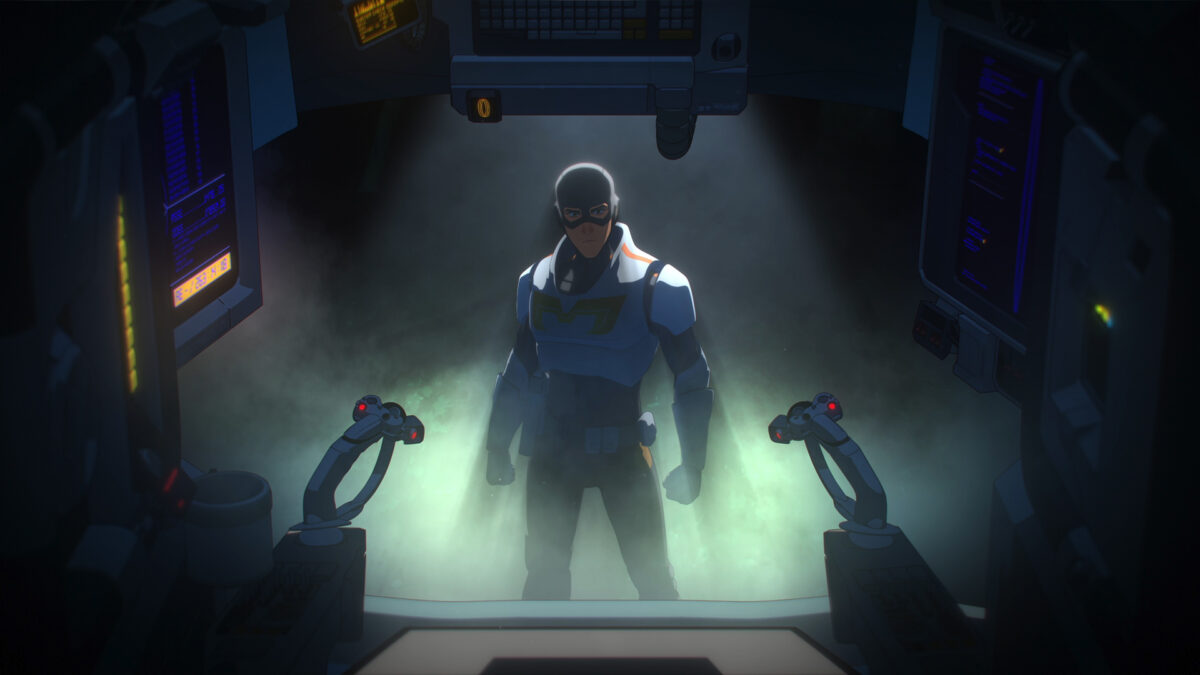
The overarching story that focuses on Robert trying to bring back Mecha Man, his two potential love interests of Blond Blazer and Invisigal, as well as the whole trying to keep Z-Team together, ultimately just doesn’t impress. The characters it wraps up in the story I enjoyed, but I’ve seen this style of story done before and done better. All the pieces are there for another go, I just want to see them arranged in a less predictable, less cliched manner.
As for the game itself? It’s fine. Dispatch, much like The Walking Dead and other Telltale story-focused games, doesn’t do much in the way of direct action. You won’t be taking control of Z-Team, with most action sequences playing a lot like cult rhythm game Osu! Icons will appear on screen, and you have to move the mouse or analogue stick, or hit the button in time to succeed.
You can’t “lose” as such, as the cutscenes underneath seamlessly transition depending on the outcome. It’s the dispatch sections, which each episode has about two a piece, that are the most ‘game-like’. Here, you, as Robert, have to take calls from subscribers to SDN and send out the unruly bunch to help out.
Dispatch Gameplay
You can definitely feel the D&D and tabletop influence here, with each character having their own stats, points, and abilities. The D&D side of it comes in during random events or disruptions while the Z-Team is out on a mission. You’ll need to send the right individuals based on hints in the mission description, and sometimes need to flex a stat to solve a problem.
Each hero – aside from an optional hero – comes with a preset of stats to give some indication of where to take them. You can go completely against the grain, but I found sticking to what they know and maybe upping mobility or charisma usually worked out. Failing a mission will result in an “injured” state, where they can’t contribute as much. Too many times and they’ll be “downed”, until you revive them or the shift finishes.
These sections aren’t difficult and often just require common sense. It’s also not the end of the world if you miss one, as they’re all timed. Sometimes the circumstances just don’t align. I built Invisigal to be an all-rounder, so when I pair her up with Golem, who lacks intelligence and charisma, but hits really hard, it boosts me to a successful completion each time.
This is shown on a web, where the heroes you sent over will have their stats laid over it. It can get a little nail-biting watching this puck slowly drift out of the job complete zone of the web on a 75% chance of winning.
Ultimately, much like the job itself, it feels like busy work. Even when the game introduces hacking sections, it’s never anything more than a jaunt. During the climactic Episode 8, when the dispatch section becomes a marathon, it still mostly came down to common sense. It was never as taxing as the story makes it out to be, and I’d welcome some sort of challenge mode.
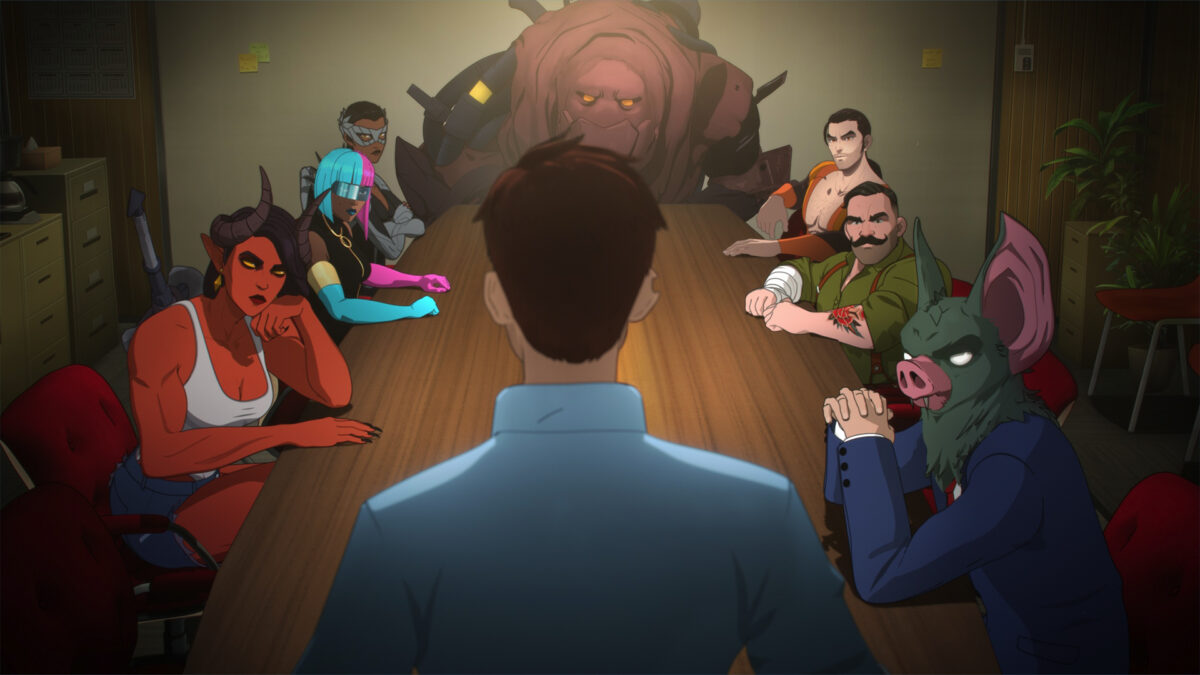
Final Thoughts
Dispatch is a cliché-filled and written for a specific audience. While I’ve personally seen it all before, it still manages to stick some kind of landing. The world that AdHoc has built, the characters and vibe it has pulled from the recesses of their media consumption, all mesh well. I just want to see how far they could push the genre further, using the medium, rather than falling back onto a safety blanket.
3/5
| Dispatch | |
| Pros | Cons |
| Great roster of characters that all feel unique | If you’ve read an independent comic in the last 30 years, you already know the score |
| Excellent little moments during the mundaneness cement the world | Every voice and trope is leant into with force |
| Manages to stick the landing, despite it all | A rather dull core plot |
Platforms: PC, PS5
Developer: AdHoc Studio
Publisher: AdHoc Studio
Release date: October 22 – November 12, 2025


